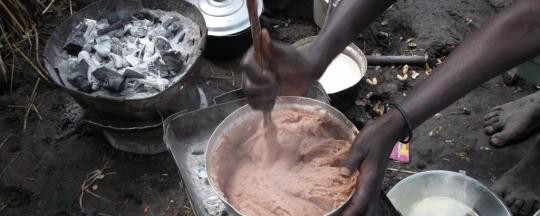The situation of the Blue Nile refugees who are currently living in Maban County in South Sudan’s Upper Nile State are deteriorating in terms of health and food, members of the refugee community said in interviews.
Refugees from the Blue Nile conflict sought shelter in South Sudan since 2011, but now are trapped between two conflicts, the one in the south and the other in the north, as well as tension within Maban County itself.
They are now among some 3.7 million people in South Sudan facing “acute or emergency levels of food insecurity” since February, according to the UN Food and Agriculture organization.
Speaking to Radio Tamazuj, refugee families at Doro, Yusuf Batil and Jendrasa camps said they were suffering from lack of food and shortage of medicines and other essential services.
Local authorities in Maban County previously said that the current conflict in the Upper Nile State is negatively affecting humanitarian access.
Cases of malnutrition
In its monthly Humanitarian Bulletin for March, the UN coordination agency (OCHA) confirmed that aid workers have been seeing cases of severe malnutrition, including kwashiorkor, a health condition caused by protein deficiency and seen during famines.
However, OCHA stated that these cases are decreasing and pointed to some recent food distributions.
“While severe acute malnutrition cases with kwashiorkor have decreased, food shortages continue to put the vulnerable (children, pregnant and lactating women and the elderly in particular) at risk of malnourishment,” said the agency.
OCHA explained that delivery of relief supplies to the refugee camps in Maban County was prevented by fighting along the transport routes elsewhere in Upper Nile State.
As a result, during the first week of March refugees in four camps in Maban County received only ten-day rations of pulses and oil and have received cereals and salt for more than one month.
“Refugees relied on leaves and wild fruits to supplement their meals before the distribution began,” noted the UN agency.
On 22 March, 15-day food rations were distributed to refugees in Kaya camp, and those in Gendrassa and Doro camps received seven and five-day food rations, respectively. In Yusuf Batil camp, food distribution also started by the end of the month.
Most of this food was delivered through airdrops.
Blue Nile access
Deteriorating conditions in Upper Nile State could also negatively affect humanitarian conditions in civilian enclaves and displacement sites within the rebel-held territories of southern Blue Nile State.
A member of the SPLM-North delegation to the ongoing Sudanese peace negotiations in Addis Ababa, Hashim Orta, warned of worsening humanitarian conditions in the SPLM-N held areas in Sudan’s Blue Nile.
In an interview with Radio Tamazuj, Orta stated the humanitarian situation in the Blue Nile is also alarming. He noted Khartoum government is still refusing to allow the organizations to provide aid assistance to Blue Nile and South Kordofan States.
“This move is a systematic extermination of the people living in the two areas,” he claimed. The SPLM-N leader called on the international bodies to put pressure on Khartoum government to allow humanitarian access to the conflict-affected people in the Two Areas.
File photo: A woman cooking in Doro Camp, June 2012 (Radio Tamazuj)




